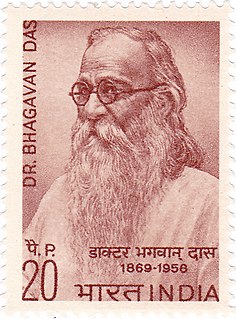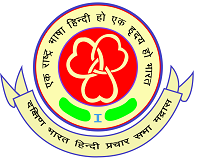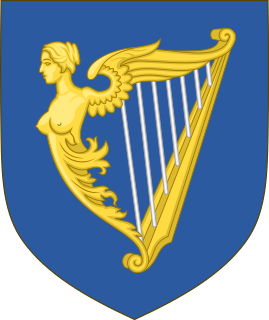
Sarojini Naidu was an Indian independence activist and poet who earned the sobriquet of Nightingale of India. She was born in a Bengali Hindu family at Hyderabad and was educated in Chennai, London and Cambridge. She married Dr. Govindarajulu Naidu and settled down in Hyderabad. She took part in the Indian nationalist movement, became a follower of Mahatma Gandhi and fought for the attainment of Swaraj or independence. She became the President of Indian National Congress and was later appointed as Governor of the United Provinces, now Uttar Pradesh. She was the first woman Governor of the Republic of India. Known as the 'Nightingale of India', she was also a noted poet. Her poetry includes children's poems, nature poems, patriotic poems and poems of love and death. She also wrote poetry in praise of Muslim figures like Imam Hussain, in a time where Muslim-Hindu tensions ran high in pre-independence era. Issues regarding the split of India into a Muslim country and a Hindu country have already begun, and as she had gotten an inter-caste and inter-regional marriage in a time where this was uncommon, her goal was to bring all of India together regardless of religion.

Bhagwan Das was an Indian Theosophist and public figure. For a time he served in the Central Legislative Assembly of British India. He became allied with the Hindustani Culture Society and was active in opposing rioting as a form of protest. As an advocate for national freedom from the British rule, he was often in danger of reprisals from the Colonial government. He was awarded the Bharat Ratna in 1955.

The Indian Home Rule movement was a movement in British India on the lines of Irish Home Rule movement and other home rule movements. The movement lasted around two years between 1916–1918 and is believed to have set the stage for the independence movement under the leadership of Annie Besant all over India whereas B. G. Tilak participation was limited to the educated English speaking upper class Indians. In 1921 All India Home Rule League changed its name to Swarajya Sabha.

SachivottamaSir Chetpat Pattabhiraman Ramaswami Iyer, KCSI, KCIE, also called "C. P.", was an Indian lawyer, administrator and politician who served as the Advocate-General of Madras Presidency from 1920 to 1923, Law member of the Executive council of the Governor of Madras from 1923 to 1928, Law member of the Executive Council of the Viceroy of India from 1931 to 1936 and the Diwan of Travancore from 1936 to 1947. Ramaswami Iyer was born in 1879 in Madras city and studied at Wesley College High School and Presidency College, Madras before qualifying as a lawyer from the Madras Law College. He practised as a lawyer in Madras and succeeded S. Srinivasa Iyengar as the Advocate-General of the Madras Presidency. He subsequently served as the Law member of the Governor of Madras and of the Viceroy of India before being appointed Diwan of Travancore in 1936.

Valangaiman Sankaranarayana Srinivasa SastriCH PC was an Indian politician, administrator, educator, orator and Indian independence activist. He was acclaimed for his oratory and command over the English language. Srinivasa Sastri was born to a poor temple priest in the village of Valangaiman near Kumbakonam, India. He completed his education at Kumbakonam and worked as a school teacher and later, headmaster in Triplicane, Madras. He entered politics in 1905 when he joined the Servants of India Society. Sastri served as a member of the Indian National Congress from 1908 to 1922, but later resigned in protest against the Non-Cooperation movement. Sastri was one of the founding members of the Indian Liberal Party. In his later days, he was strongly opposed to the partition of India.

The Servants of India Society was formed in Pune, Maharashtra, on June 12, 1905 by Gopal Krishna Gokhale, who left the Deccan Education Society to form this association. Along with him were a small group of educated Indians, as Natesh Appaji Dravid, Gopal Krishna Deodhar and Anant Patwardhan who wanted to promote social and human development and overthrow the British rule in India. The Society organized many campaigns to promote education, sanitation, health care and fight the social evils of untouchability and discrimination, alcoholism, poverty, oppression of women and domestic abuse. The publication of The Hitavada, the organ of the Society in English from Nagpur commenced in 1911.
Dr. Muthulakshmi Reddy was an eminent medical practitioner, social reformer and Padma Bhushan awardee in India. She was the first female legislator in India.
Besant Theosophical College is one of the oldest colleges in the Rayalaseema Region of Andhra Pradesh. The college started on 19 July 1915. Initially it was affiliated to Madras University. In 1917 it was obliged to dissociate itself from Madras University and became part of National University. Rabindranath Tagore was the chancellor of the university.

The Imperial Legislative Council was a legislature for British India from 1861 to 1947. It succeeded the Council of the Governor-General of India, and was succeeded by the Constituent Assembly of India and after 1950, was succeeded by Parliament of India.

Victoria Public Hall, or the Town Hall, is a historical building in Chennai, named after Victoria, Empress of India. It is one of the finest examples of British architecture in Chennai and was built to commemorate the golden jubilee of Queen Victoria. It served as a theatre and public assembly room in the late 19th century and the early 20th century. It now houses the South Indian Athletic Association Club.
Events in the year 1915 in India.

Eardley John Norton was a Madras barrister, Coroner and politician of British origin. He was also one of the earliest members of the Indian National Congress and a champion of civil liberties and rights of the Indian people.
C. Jambulingam MudaliarCIE was an Indian politician and freedom-fighter who served as a civil court judge and member of the Madras Legislative Council. He was one of the foremost leaders of the Indian National Congress in the 1890s.
Arcot Ranganatha Mudaliar was an Indian politician and theosophist from Bellary. He served as the Minister of Public Health and Excise for the Madras Presidency from 1926 to 1928.

Dakshina Bharat Hindi Prachar Sabha is an organisation whose main goal is to improve Hindi literacy among the non-Hindi speaking people of South India. The headquarters are located at Thanikachalam Road, T. Nagar, Chennai.
The Besant v. Narayaniah Case is a suite filed by Jiddu Narayaniah, father of J. Krishnamurti in 1912 against theosophist Annie Besant for the custody of his son. The case argued for Narayaniah by C. P. Ramaswami Iyer was won by him and was a cause célèbre of the time though Besant later appealed to the Privy Council of the United Kingdom and got a ruling in her favour. Besant and C.P. Ramaswami Iyer who were in opposing camps during the trial eventually became friends after the case got over and jointly participated in the Home Rule Movement.
Dravidian movement started with the formation of the Justice Party on November 20, 1916 in Victoria Memorial Hall in Madras by T. M. Nair and P. Theagaraya Chetty as a result of a series of non-Brahmin conferences and meetings in the presidency. Communal division between Brahmins and non-Brahmins began in the presidency during the late-19th and early-20th century, mainly due to caste prejudices and disproportionate Brahminical representation in government jobs. The Justice Party's foundation marked the culmination of several efforts to establish an organisation to represent the non-Brahmins in Madras Presidency.
New India was an early 20th century daily newspaper published in India by the Annie Besant, to highlight issues related to the Indian freedom struggle.
















